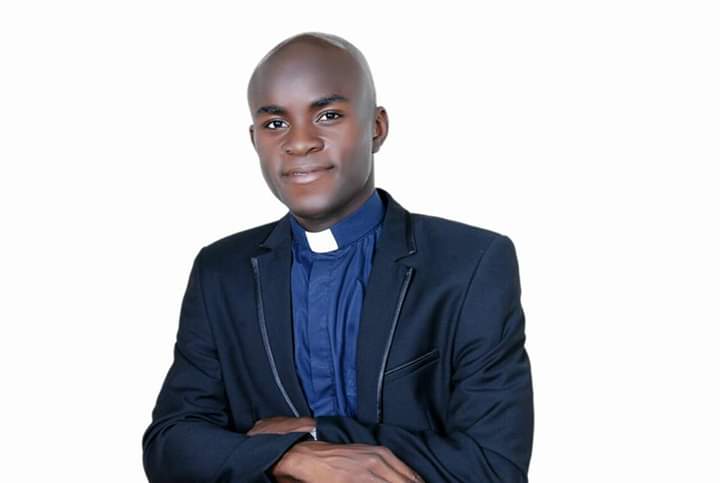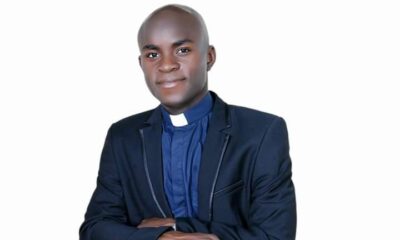Homilies & Reflections
4th Sunday in Ordinary Time,Year B by Rev. Fr Lucas Binnah
Read: First Reading: Deuteronomy 18:15-20/Responsorial Ps.: Psalm 95:1-2.6-7abc.7d-9 (R.7d.8a) Second Reading: I Corinthians 7:32-35/ Gospel Acclamation: Mt.4:16/Gospel: Mark 1:21b-28
Theme: Authentic As Prophet Jesus!
A prophet is a spokesperson, the mouth-piece of God. His duty is not so much to predict or foretell the future as to interpret God’s word in the present conditions of his people. According to Joseph B. Wirthlin, the prophet has no other purpose, no other mission except to serve God. He is a true teacher called to guide others in order to do God’s will and walk the right path. He leads an exemplary life and calls others to the same (cf. Jer. 28:1ff; Ez. 13:1ff). Against the backdrop of the phenomenon whereby some people parade themselves as self-styled prophets, the readings of today highlight how we can discern who is and who is not a prophet by the standards of God.
In the first reading, Moses speaks to the Israelites: “The Lord your God will raise up for you a prophet like myself from your midst, from among your own people, to him you shall listen” (Deut. 18:15). Therefore, the first criterion in knowing who a prophet is, is that, he is chosen by God himself. God calls, God appoints and God ordains! No one has the prerogative to choose himself. Again, God chooses from among his people. He uses mere human instruments, people who are weak and vulnerable, yet available, ready and docile. Another criterion is that such a person would not speak on his own, but only God’s message by using the messenger formula, “Thus says the Lord.” Hence, we read thus: “… and I will put my words in his mouth, and he shall speak to them all that I command him” (Deut. 18:19). Then comes a warning, “But the prophet who presumes to speak a word in my name which I have not commanded him to speak, or who speaks in the name of other gods, that same prophet shall die” (Deut. 18:20).
Given the above, it is clear that God wants us to live by his word, not by magic, fortune-telling, sorcery, witchcraft, divination, soothsaying, consultation of ghosts and other detestable things which look like prophetism (cf. Deut. 18:11-12). Not only are we expected to live by God’s word as found in Scripture, but also by what God says today through authentic or genuine prophets. Such prophets are filled with the Holy Spirit and are inspired by him to guide people and nations in the ways of God (cf. II Pet. 1:19-20). Jesus, the prophet par excellence is the expected prophet, for which we read: “And whoever will not give heed to my words which he shall speak in my name, I myself will require it of him.” In view of this, the Psalmist urges: “O that today you would listen to his voice, harden not your hearts!” (Ps. 95:7-8). Thus, we are advised to listen to Jesus and those authorised to speak in his name. Be that as it may, we are all equally instructed to make effort to discern the authentic prophets from the inauthentic ones whose preoccupation is to make sordid money superstitiously by exploiting the credulity of naive and unsuspecting folks.
So, how can such discernment be made given the fact that in our contemporary world just as in the ancient times, ravenous wolves come clad in sheep’s clothing and answer the name prophet? Moses gives us a clue when he queries: “You will perhaps ask: ‘How am I to know that a word does not come from the Lord?’ To this question, Moses says: “If a prophet speaks in the name of the Lord but what he says does not happen or come true, you shall know that the word has not come from the Lord. The prophet has spoken presumptuously, and you have nothing to fear from him” (Deut. 18:21-22). Moses’ answer is apt; however, there are very cunning people, confident tricksters and agents of Satan who diabolically procure information about other people and are able to make predictions likely to happen. Are we to call such people prophets who speak in the name of the Lord? The Gospel provides an answer to this challenge.
As the God-made-man, Jesus comes to reveal God to us. He comes to Capernaum and teaches in their synagogue with prophetic authority so different from the religious leaders, to the amazement as well as the hatred of the Jews. He speaks to power; challenges the negative socio-cultural and religious practises. He does not smooth things over like a sycophant, coward and a yes man, but insists on making things right! Jesus is seen not just as a true prophet, but the greatest prophet, the expected Messiah, the new Moses about whom God promised in the first reading (cf. Deut. 18:15; Jn. 1:21; Acts 3:22-23). He teaches with personal authority by speaking with the finality of God’s voice and demonstrates power in his word by healing a demoniac. Not just the miracle which follows his teaching; his entire life proves he is truly a man of and from God, for he lives by example. This endears him to the congregants, for, unlike the scribes who teach about the Law (Torah), Jesus Christ exercises his authority as the Giver of the Law, the Word itself (cf. Jn. 1:1)!
Therefore, true prophets do not just speak God’s word; they also exemplify it by their way of life! They neither work for cheap popularity nor money. They do not predict good in favour of their sponsors and doom against non-sponsors. In society, they are no respecters of persons as they speak against evil irrespective of who or what is committing it. They bring order not confusion; preach fidelity not apathy, and when they predict, they provide a way out, God’s path for his people! Hence, “By their fruits, you shall know them” (Mt. 7:20, 17-19). If God calls us his messengers, we should become the message he gives us by living it. The messenger must show devotion to both the message and the sender. The messenger and the message must never ever run in opposite directions; no duplicity and no dichotomy! If we preach holiness, we should be holy. If we teach giving, we must be seen as charitable; If we talk love, we should live love. Otherwise, we are just deceivers, pretenders and false prophets. In the words of Stephen Crane, “A serious prophet upon predicting a flood should be the first man to climb a tree. This would demonstrate that he was indeed a seer.” God’s word has intrinsic power. If we listen to, read, study, obey and live it, not only will it edify us, it will also enable us conceive it like Mary (cf. Lk. 1:28,31-38), and thus, live prophetically. May God grant us prophetic courage in our lives!
In view of prophetic authenticity and singleness of purpose, St. Paul uses the second reading to talk about the different states of life, be it single or married, as we await the Parousia, the Second Coming of Christ. Whichever state we find ourselves, let us show undivided devotion and fidelity to God and promote order as a sign of our integrity (cf. I Cor. 7:35). By his own example, Jesus urges us to become God’s authentic word in speech and action. By virtue of our baptism, we share in the threefold-function of Jesus as prophet, priest and king. As prophets, we should be genuine. Happy Sunday and may God bless us! Remember, be: #Authentic-As-Prophet-Jesus#
By Rev. Fr. Lucas Binnah Junior, C.S.Sp.
Sharing is caring!
Ghana Catholic News aim to provide up to date news on the Catholic Church in Ghana on various disciplines such as diocese, priesthood, programs/events, promoting of the Catholic faith, daily readings, homilies, Catechism, etc.





